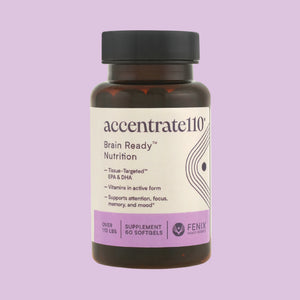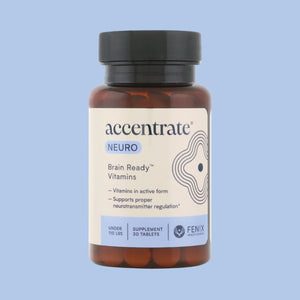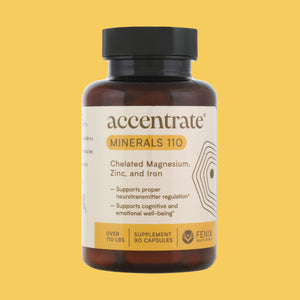What Should I Look for in a Probiotic?

Are probiotics just the latest health fad? With so many probiotics on the market it seems that would be the case, but there’s actually a substantial amount of scientific support emerging that probiotics do provide many health benefits. But are all probiotics the same?
With all the available products, it can be challenging to determine which is the right one to take for your specific health goals. Gut health is typically the main priority, which is great, but did you know the gut has a direct impact on your mental health too? This makes the probiotic choice even more important!
There are several things to consider when choosing a probiotic: which strains are included, other ingredients such as prebiotics, how it’s stored/shipped, and how the probiotics are delivered. Let’s look at these benchmarks for the MicroVita® probiotics and see what makes them different from the average probiotic, so you can make an informed choice for your personal health needs.
1. Specific Strain Selection for Mental Health
The first thing to consider is the strains included in the product. We targeted specific probiotic strains that support proper dopamine and serotonin regulation as well as absorption of essential nutrients. Each probiotic strain has clinical support validating its inclusion.
All strains were selected because they support mental and neurological health by utilizing the gut-brain axis, a direct communication line between your gut and brain.
2. Allowing Colonization by Paring Non-competing Strains
One thing not often considered with probiotics is that certain strains are colonizers and some are transient. This means that some will stick around longer by colonizing the intestines and some are just passing visitors. For the transient strains, repeated use is key, but for the colonizers, they need the proper environment.
The strains aim to colonize, and in this process, it’s important that the strains are not in competition with each other. This is where strain selection comes into play.
3. The Right Prebiotics
Another discussion you’ve likely heard about before is prebiotics, which provide the strains with energy on their journey. Think of prebiotics as sending the probiotic strains to school with a healthy lunch. They are ready to go and don’t have to worry about finding food to stay alive throughout both storage of the product prior to your purchase and in your gut environment as well. Inulin is a common prebiotic, as they “snack” on starches of various kinds. But just like kids going to school, they have preferences! In our probiotic, we selected the strains’ favorites so they’re ready to start colonizing.
4. Strains Arrive Alive
Lastly, but most importantly, most strains provide benefit only when they are alive. With the manufacturing and storage process, some value can be lost along the way. You may know it’s often best to store the products in the refrigerator.. In fact, we store it cold in our facilities and ship it in gel packs in the warm summer months to help with this. As is common with probiotics, we also include overages to ensure the dosing is accurate as well.
Another factor is the capsules themselves. With certain delivery methods, the good bacteria may be going straight to the stomach acid and provide little to no benefit for you. Our capsules are designed to pass through the stomach and dissolve in the intestine, releasing the probiotics right where they’re needed so you get the full benefit from these helpful strains.
Hopefully looking at these factors will help you as you determine which probiotics are right for you. If you have any questions, check out the link below or reach out to us with questions at info@fenixhealthscience.com!
These statements have not been evaluated by the Food and Drug Administration. This product is not intended to diagnose, treat, cure, or prevent any disease.
References:
[1] Liu, W, et al. “Alteration of behavior and monoamine levels attributable to Lactobacillus plantarum PS128 in germ-free mice.” Behavioural Brain Research 298 (2016): 202-209.
[2] Wu, C, et al. "Randomized Controlled Trial of Probiotic PS128 in Children with Tourette Syndrome.” Nutrients 13.11 (2021): 3698.
- Tags: probiotics




